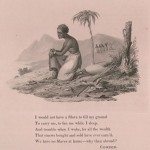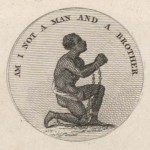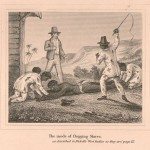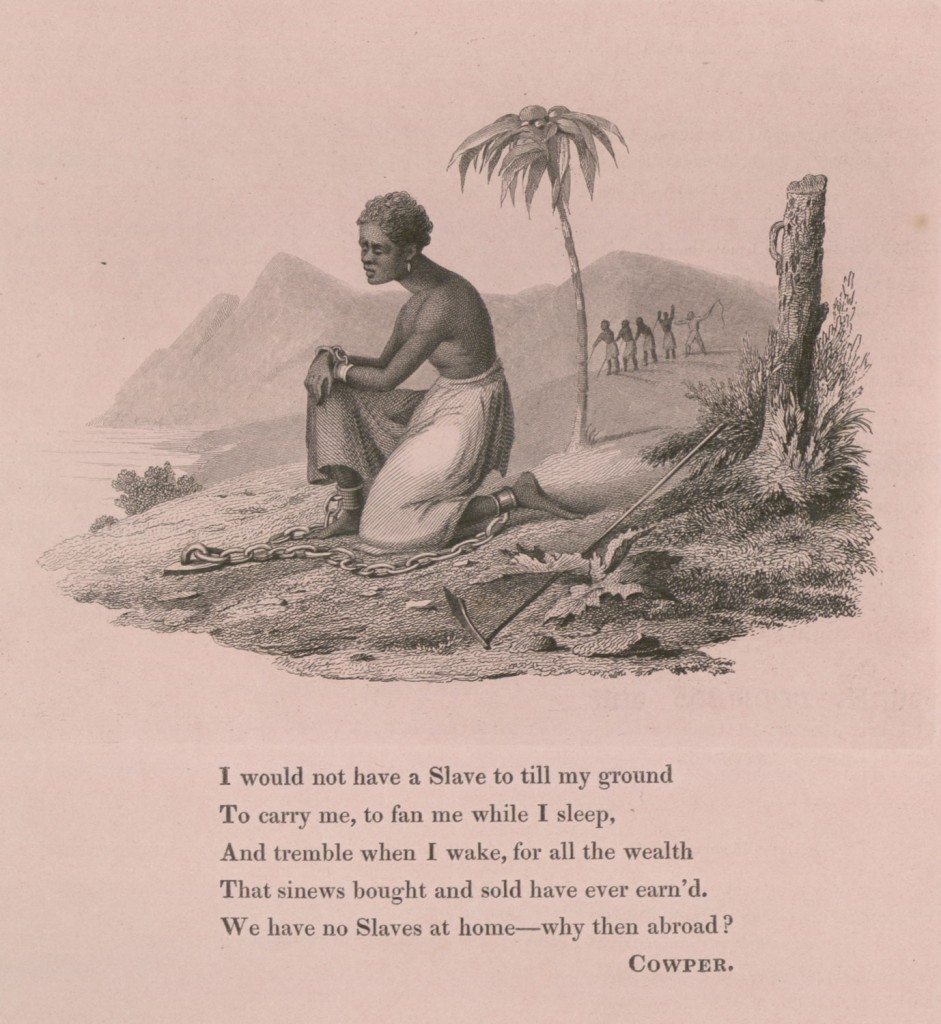The Lunar Society and the Anti-slavery Debate
Text: Malcolm Dick
Image: Illustration from The Female Society for the Relief of Negro Slaves Album (1828)
Summary: Most studies of the men of the Lunar Society have focused on their scientific and industrial achievements. Matthew Boulton, James Watt, Josiah Wedgwood, Erasmus Darwin and Joseph Priestley are remembered for their importance as entrepreneurs and inventors. Their contribution to social change is not so well-known. In the late 18th century, Thomas Day, Erasmus Darwin, Wedgwood and Priestley were influential campaigners against slavery. A boycott of West Indian sugar was also an aspect of the local campaign in 1791. Mary Anne Galton, the daughter of Samuel Galton junior, another Lunar man, was a supporter. Two others, Boulton and Watt were ambiguous in their approach to slavery. In the early 19th century, campaigning against slavery continued, led in part by daughters of the Lunar men.
Sections: [Click on the images on the right to access each section]
1. Anti-slavery and the Midlands
• Introduction
• Slavery and anti-slavery
• The local context
2. Anti-slavery: Poetry, Images and Ideas
• Thomas Day
• Erasmus Darwin
• Josiah Wedgwood
• Joseph Priestley
• Priestley and the Cruelty of the Slave Trade
• Priestley and the Slave- Slave Owner Relationship
• Priestley and the Moral Degradation of Slavery
• Priestley and the Supremacy of Morality over Economics
• Priestley and the Humanity of the African Slave
3. Commerce, Slavery and Anti-slavery
• The Anti-saccharists
• Boulton and Watt
• James Watt
• Samuel Galton junior
4. Abolition of the Slave Trade and Slavery
Continue browsing this section
 The Lunar Society and the Anti-slavery Debate
The Lunar Society and the Anti-slavery Debate
 Anti-slavery and the Midlands
Anti-slavery and the Midlands
 Anti-slavery: Poetry, Images and Ideas
Anti-slavery: Poetry, Images and Ideas
 Commerce, Slavery and Anti-slavery
Commerce, Slavery and Anti-slavery
 Abolition of the Slave Trade and Slavery
Abolition of the Slave Trade and Slavery
Sources and Further Reading
Birmingham City Archives
Galton Papers, Samuel Galton junior, To the Friends of the Monthly Meeting at Birmingham, 1795
James Watt Papers, Boulton and Watt Papers
Records of the Female Society for the Relief of British Negro Slaves
Primary Printed Sources
Aris’s Birmingham Gazette, (Birmingham, 1787-1791).
Darwin, Erasmus, The Botanic Garden, (London, 1791).
Day, Thomas, The Dying Negro, in The Poetical Works of Thomas Day, (1805).
Equiano, Olaudah, The Interesting Narrative of the Life of Olaudah Equiano or Gustavus Vasa, the African, Sixth edition, (1793).
Galton, Mary Anne, Life of Mary Anne Schimmelpenninck, (1860).
Langford, J. A., A Century of Birmingham Life, (1868).
Priestley, Joseph, Sermon on the subject of the Slave Trade, (1788).
Secondary Sources
Guyatt, Mary, “The Wedgwood Slave Medallion: Values in Eighteenth-century Design”, Journal of Design History, Vol 13, No 2, 2000
King Hele, Desmond, Erasmus Darwin,( London, Giles de la Mare, 1999)
Reilly, Robin, Josiah Wedgwood, 1730-1795, London, Macmillan, (1992).
Peter Rowland, The Life and Times of Thomas Day, 1784-1789, (1996).
Smith, Barbara M D, “The Galton’s of Birmingham: Quaker Gun Merchants and Bankers, 1702-1831”, Business History vol. ix, no 2 July 1967. p 147
Uglow Jenny, The Lunar Men, (London, Faber and Faber, 2000).






